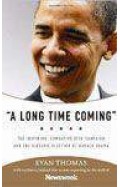China Shakes The World
By: James Kynge
-
Rs 510.00
- Rs 600.00
- 15%
You save Rs 90.00.
Due to constant currency fluctuation, prices are subject to change with or without notice.
We are offering a high discount due to slightly damage.
We have long been looking for a book on the new China, the nation that in 25 years has changed beyond all recognition, becoming an industrial powerhouse for the world. James Kynge, China Bureau Chief of the Financial Times since 1998, will, by July, complete a book that shows not only the extraordinary rise of the Chinese economy, but what the future holds as China begins to influence the world. This is the book for anyone who wants to understand this astonishing turn-round.
On the eve of the British industrial revolution some 230 years ago, China accounted for one third of the global economy. In 1979, after 30 years of Communism, its economy contributed only two per cent to global GDP. Now it is back up to five per cent, and rising. As Kynge says, although China is already a palpable force in the world, its re-emergence is only just starting to be felt. Over the next decade the hunger for foreign jobs, raw materials, energy and food will reshape world trade, capital flows and politics. The outflow of Chinese manufactured products, tourists, students, corporate and personal investments will be felt keenly in some parts.
Kynge also shows China's weaknesses - its environmental pollution, its crisis in social trust, its weak financial system and the faltering institutions of its governments - which are poised to have disruptive effects on the world. The fall-out from any failure in China's rush to modernity or simply from a temporary economic crash in the Chinese economy would be felt around the world.
We are offering a high discount due to slightly damage.
We have long been looking for a book on the new China, the nation that in 25 years has changed beyond all recognition, becoming an industrial powerhouse for the world. James Kynge, China Bureau Chief of the Financial Times since 1998, will, by July, complete a book that shows not only the extraordinary rise of the Chinese economy, but what the future holds as China begins to influence the world. This is the book for anyone who wants to understand this astonishing turn-round.
On the eve of the British industrial revolution some 230 years ago, China accounted for one third of the global economy. In 1979, after 30 years of Communism, its economy contributed only two per cent to global GDP. Now it is back up to five per cent, and rising. As Kynge says, although China is already a palpable force in the world, its re-emergence is only just starting to be felt. Over the next decade the hunger for foreign jobs, raw materials, energy and food will reshape world trade, capital flows and politics. The outflow of Chinese manufactured products, tourists, students, corporate and personal investments will be felt keenly in some parts.
Kynge also shows China's weaknesses - its environmental pollution, its crisis in social trust, its weak financial system and the faltering institutions of its governments - which are poised to have disruptive effects on the world. The fall-out from any failure in China's rush to modernity or simply from a temporary economic crash in the Chinese economy would be felt around the world.
Zubin Mehta: A Musical Journey (An Authorized Biography)
By: VOID - Bakhtiar K. Dadabhoy
Rs 892.50 Rs 1,050.00 Ex Tax :Rs 892.50
Myths Illusions and Peace: Finding a New Direction for America in the Middle East
By: Dennis Ross
Rs 766.50 Rs 1,095.00 Ex Tax :Rs 766.50
Operation Dark Heart: Spycraft And Special Ops On The Frontlines Of Afghanistan And The Path To Victory
By: Anthony Shaffer
Rs 1,697.50 Rs 3,395.00 Ex Tax :Rs 1,697.50
Anna Hazare: The Face Of Indias Fight Against Corruption
By: Pradeep Thakur
Rs 255.00 Rs 300.00 Ex Tax :Rs 255.00
How To Win A Cosmic War God Globalization And The End Of War
By: Reza Aslan
Rs 625.50 Rs 695.00 Ex Tax :Rs 625.50
A Long Time Comming: The Inspiring Combative 2008 Campaign And
By: Evan Thomas
Rs 597.50 Rs 1,195.00 Ex Tax :Rs 597.50
Horrid Henry and the Zombie Vampire (Horrid Henry )
By: Francesca Simon
Rs 1,615.50 Rs 1,795.00 Ex Tax :Rs 1,615.50
Zubin Mehta: A Musical Journey (An Authorized Biography)
By: VOID - Bakhtiar K. Dadabhoy
Rs 892.50 Rs 1,050.00 Ex Tax :Rs 892.50














-120x187.jpg?q6)















-Paperback-120x187.jpg?q6)